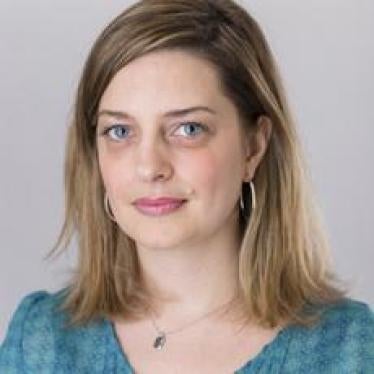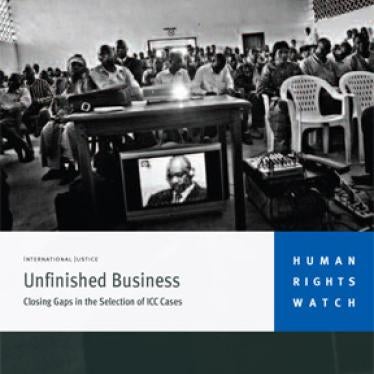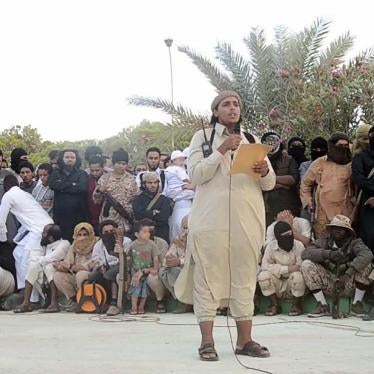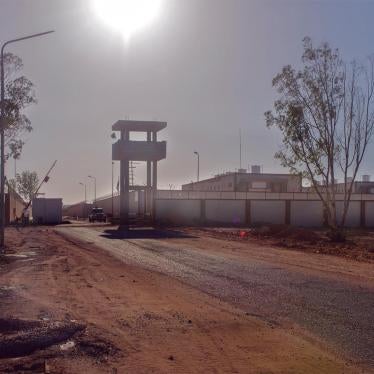The international criminal court prosecutor, Luis Moreno-Ocampo, made headlines in March when he opened an investigation into attacks by government forces on demonstrators in Libya. His investigation led straight to the former leader Muammar Gaddafi.
Now that Libyan rebels have taken Tripoli, attention has returned to accountability, although Gadaffi is still at large.
The ICC warrant for Gaddafi covers crimes committed since February, and will not touch on many horrific abuses committed during his decades in power.
If the new Libyan government wants to try Gaddafi in Libya it will need to bring that request before ICC judges. But the over-burdened National Transitional Council will require considerable time and money to establish a functioning, fair justice system, let alone conduct complex prosecutions of international crimes.
Co-operating with ICC investigations and surrendering Gaddafi to The Hague is the better choice, but one not without difficulties.
Prosecutions carried out by international courts run the risk of failing to resonate with victims and affected communities. To bridge the distance from The Hague, the ICC prosecutor needs strategies rooted in the local context and designed to bring to trial those most responsible for the gravest crimes.
Moreno-Ocampo's choices in his first ICC investigations - from Congo to Darfur - have so far not met this challenge. As the court's first prosecutor, his job was always going to be difficult. He has faced tough choices in kick-starting the court's work. But ICC investigations have often bypassed major perpetrators and crimes.
An example is Congo, where civilians have suffered abuses from all sides during years of conflict. Closing arguments recently wrapped up the ICC's first trial, that of a Congolese militia leader charged with using child soldiers.
This is an important case. But the prosecutor did not pursue investigations of officials in neighbouring countries who supported abusive militias and may share responsibility for crimes.
When announcing a possible Uganda investigation in 2004, Moreno-Ocampo stood side-by-side with President Yoweri Museveni, although the Ugandan army had committed abuses.
Seven years on, the prosecutor has sought only arrest warrants for rebel Lord's Resistance Army leaders, and none for Ugandan officials. The prosecutor's failure to clearly explain these choices has done little to reassure observers of the ICC's independence from political pressure.
In Sudan, the prosecutor sought warrants for two mid-level leaders for government atrocities in Darfur. But he has so far named only one senior leader – President Omar al-Bashir – for these crimes. The charity Human Rights Watch and others have uncovered considerable information implicating other senior Sudanese leaders in atrocities. Pursuing Bashir without his high-level cohorts has left the ICC open to charges of politicisation and falls short of prosecuting those most responsible for abuses.
These choices matter. They have left too many victims without justice and have disappointed the public. They have undermined perceptions of the court's independence and impartiality.
With less than a year left in office, Moreno-Ocampo can still address shortcomings and make strong recommendations to his successor, who will be elected by ICC member countries in December.
His Kenya investigations show it can be done better. While investigations there are not complete, Moreno-Ocampo has sought charges against both sides over 2007 election violence, extending justice and affirming impartiality.
The burden is not on the ICC prosecutor alone. Without arrests in open cases – a responsibility countries must shoulder – there can be no justice. And the ICC will need additional resources to square new and existing demands.
But a renewed commitment by the ICC prosecutor to bring justice where it is needed most would go to the heart of delivering on the ICC's promise. Such a commitment deserves our support.
Elizabeth Evenson is a senior counsel in the International Justice Program of Human Rights Watch and the author of the Human Rights Watch report, Unfinished Business: Closing Gaps in the Selection of ICC Cases.








